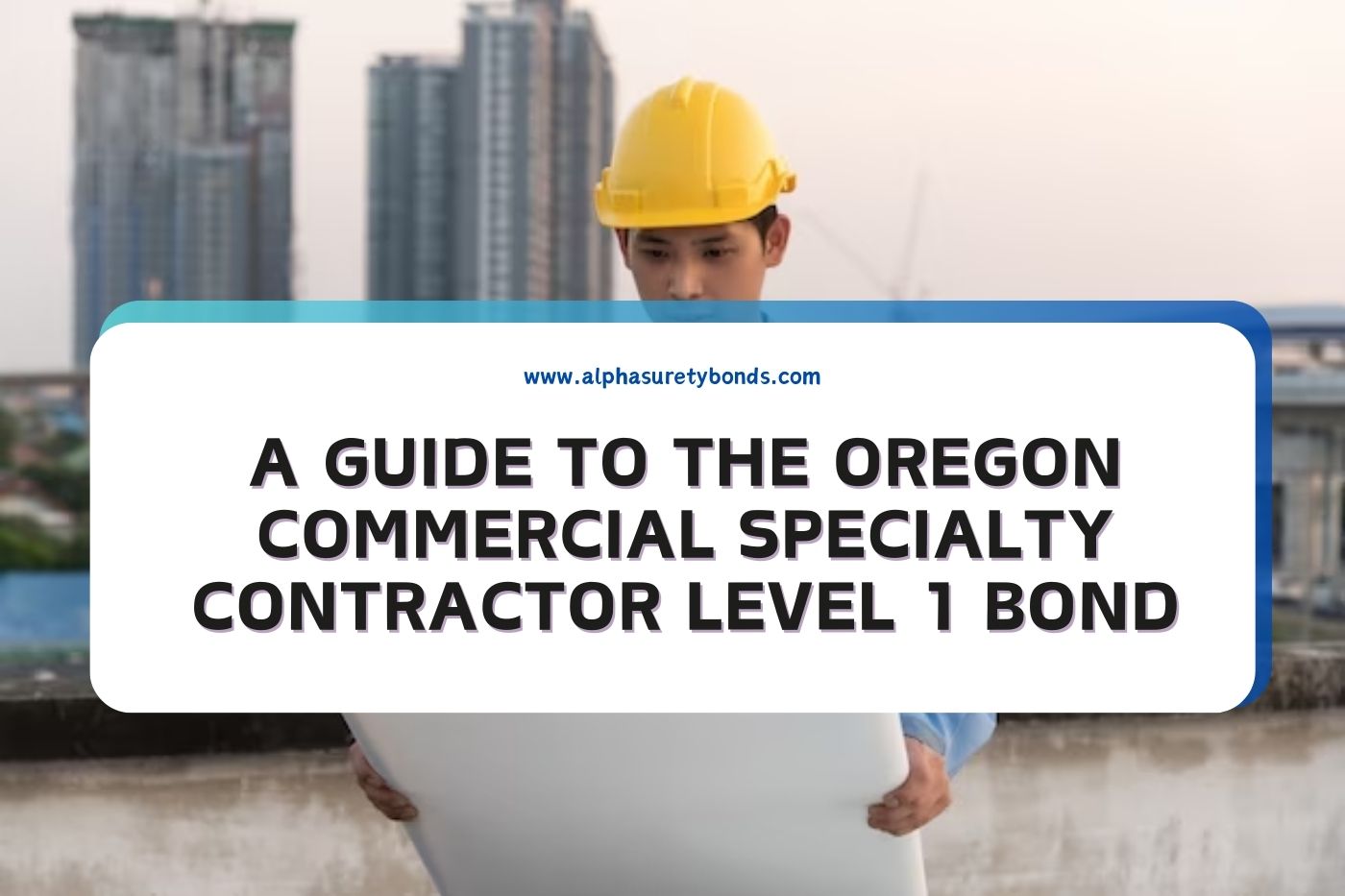Get An Instant Quote on Oregon Commercial Specialty Contractor Level 2 Bond
Oregon Commercial Specialty Contractor Level 2 Bond: Definition and Purpose
Explanation of What a Commercial Specialty Contractor Level 2 Bond Is
A Commercial Specialty Contractor Level 2 Bond, also known as the $20,000 bond, is a type of surety bond required in the state of Oregon for contractors that perform specialized work on commercial properties. The bond provides financial protection to consumers by guaranteeing that the contractor will adhere to all applicable laws and regulations.
Purpose and Importance of This Bond in Oregon
The main purpose of this bond is to ensure compliance with construction standards and safeguard public interests. If a contractor fails to meet their obligations under the contract or violates any regulations, affected parties can file claims against the bond seeking compensation. It adds an extra layer of security for both customers and subcontractors involved in commercial construction projects.
Requirements for Obtaining a Commercial Specialty Contractor Level 2 Bond in Oregon
Detailed List Of Requirements
Obtaining this type of surety bond involves several steps:
- Proof that your business is legally registered
- A complete application form
- Payment proof for the premium amount
- Credit check verification
- Financial statements
Explanation Of Each Requirement
To get bonded, you need legal registration proof showing your business’s active status within Oregon State boundaries. An application form must be filled out detailing personal information along with company details like tax ID number etc. Premium payment receipts are needed as bonds aren’t free; they come at a cost that varies based on different factors. Credit checks are carried out by bonding companies because these serve as credit lines extended toward businesses; thus ensuring good financial health is crucial.
Lastly, provide copies regarding annual income (for sole proprietors) or balance sheet reports (for corporations).
Process Of Applying For The Bond
Now we’ll guide you through how to apply:
1) Fill out an online application provided by surety agency,
2) Submit required documentation,
3) Pay the premium,
4) Receive your bond in the mail.
Required Documents and Where to Submit Them
Required documents include business registration papers, filled-out application forms, financial statements, and credit score proof. These should be submitted electronically via the surety agency’s website during the online application process.
Cost Of The Bond
Let’s discuss the cost breakdown of this $20,000 bond.
Breakdown Of The $20,000 Bond Cost
This type of surety bond doesn’t mean you’ll have to pay $20k upfront. Instead, it represents the maximum claim amount covered by the bond if any violation occurs on the contractor’s part. Premiums are calculated as a percentage of the total sum and typically range between 1-15% based on various factors like applicant’s credit score etc., thus final payable can vary significantly for different applicants.
Factors That Influence The Cost And Possible Additional Costs
Factors influencing costs mainly include: the applicant’s credit history (higher scores result in lower premiums), financial strength demonstrated through income statements/balance sheets, and nature/duration of the construction project itself. There might be additional costs related to the underwriting process such as fees charged by the bonding company or legal expenses incurred if a claim is filed against you later on.
Obligations And Responsibilities Under The Bond
A detailed discussion about what obligations contractors must meet under this bond:
The main obligation is adhering strictly to all laws/regulations concerning commercial specialty work within Oregon State. Furthermore, they’re bound legally towards completion of projects as per agreed terms in the contract. Failing these responsibilities exposes them to risks related to claims filed against their bonds potentially leading towards loss covered up to full penal sum i.e., $20k here!
Claim Process Against The Bond
Next, let’s explain how a claim against the Commercial Specialty Contractor Level 2 ($20,000) Bond could be made:
If affected parties believe that the contractor has violated applicable laws or not met contractual obligations, they can file a claim against the bond with the help of legal counsel. The surety agency then investigates claims made to determine their validity. If valid, compensation is paid out up to the maximum limit defined by the bond.
Renewal And Cancellation Of The Bond
Contractors must renew their bonds annually or as per the term specified in the agreement (if other than 1 year) else risk it being cancelled.
Cancellation can also happen if the contractor violates the terms of the bonding agreement.
Frequently Asked Questions About Commercial Specialty Contractor Level 2 ($20,000) Bond
How long does the process take?
Typically takes between 1-3 business days once all required documents are submitted and payment received.
Is bad credit a problem for getting bonded?
It’s possible to get bonded even with bad credit but premiums will be higher in such cases due potential risk perceived by the bonding company.
Conclusion
The Oregon Commercial Specialty Contractor Level 2 Bond serves as a pivotal safeguard for consumers, ensuring that contractors adhere to the state’s stringent regulations and standards. By requiring this $20,000 bond, Oregon reinforces the accountability of specialty contractors, protecting public interests and maintaining the integrity of the commercial construction industry. Contractors must navigate the bonding process with precision, from fulfilling documentation requirements to understanding the financial implications of bond premiums. This bond not only fosters trust between contractors and their clients but also underlines the contractor’s commitment to quality and legal compliance.




